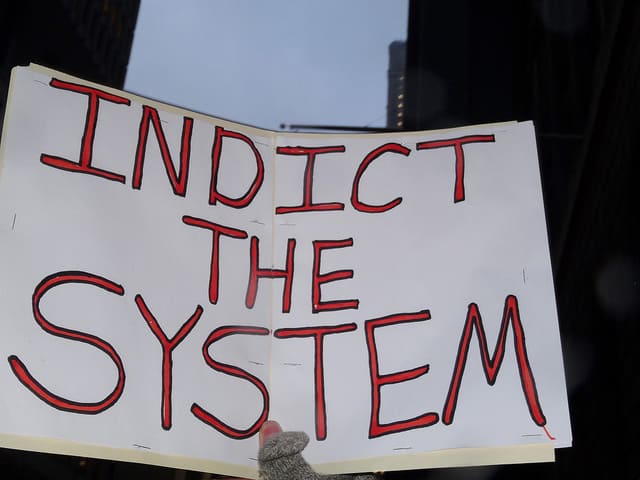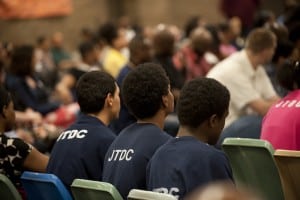During my years in Chicago, I was a volunteer at the Cook County Juvenile Temporary Detention Center. It is a place where people, mostly young African-American males under the age of 18, are awaiting trial. My goal was to offer aid to these individuals, as well as to better understand them and the social structures they exist in. Structures that are so foreign to me. Young men, kids really, are divided into those being tried as juveniles and those being tried as adults. I visited with some young men who have been there for over a year waiting for their trial to start.
It is a heartbreaking place with a few dashes of hope. Heartbreaking because of how normal it seems to so many of them. I’d often be asked to say “hey” to one of their friends in another unit, who just got arrested. At such a young age, sometimes as young as 11, this is their reality as they sit and wait for trial or a plea deal. They live by dates, they know when they entered and they know when their next court date is going to be. There are dashes of hope too, though, when we talk about what type of future they want to have — a surprising amount want to be in the criminal justice field — and the type of father they want to be, one that is there for their child. There is a sense of pride when they tell me about a chance they’ve had to perform their own poetry at a Louder Than a Bomb event in the detention center.
From these conversations I picked up The New Jim Crow: Mass Incarceration in the Age of Colorblindness by Michelle Alexander. Alexander starts with a very good, but brief, history of the old Jim Crow laws. Enacted after the Civil War, these laws were meant to enforce racial segregation and subjugation. This section itself is worth reading for anyone struggling to understand the protests and outrage this past year. Alexander then moves to a detailed look at what has caused the mass incarceration of African American males in this country: the war on drugs. The numbers are staggering at how much the prison rate has increased because of these laws developed during the 70s, 80s and 90s. Reading this book, I lost track of the number of times I stopped to shake my head in disbelief.This is a growing movement to reexamine our current drug laws from religious and secular voices.
The New Jim Crow provides a context for understanding our broken prison systems, the racism embedded in our social structures, and the burden facing so many. I should have read this book three years ago — before going to the detention center. It would not have helped me be less awkward with the guys there, but it would have helped me understand them so much more. That is the key — understanding the problem and knowing the people affected most. And that understanding and knowledge gives me a moral responsibility to no longer turn away and toss up my hands and say there is nothing that can be done. This is an important and accessible book and I can’t recommend it enough.
*******
Top Image: rally at the manhattan institute, via Flickr User hollow sidewalks, Flickr Creative Commons. Image available here.



